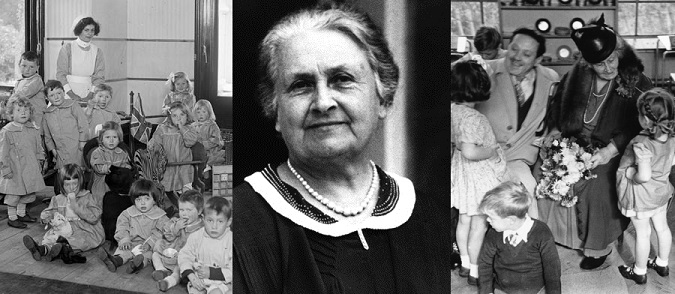
Maria Montessori: A Pioneer in Education
Maria Montessori graduated from the Faculty of Medicine at the University of Rome in 1896, becoming the first woman to qualify as a physician in Italy and one of the very first female doctors in Europe. As a physician, she began working with young children and quickly became fascinated by how they learn and grow.
Through careful scientific observation, Dr. Montessori discovered that children naturally engage with their environment and learn best through hands on experiences. She developed educational materials that sparked curiosity and supported this natural development. Over time, she identified specific and universal stages of childhood growth, insights grounded in her background in biology, psychology, and anthropology.
Montessori came to believe that education is the most powerful tool to elevate society. Her approach emphasized respect for the child, self-directed learning, and an environment prepared to nurture independence and exploration.
Throughout her life, Dr. Montessori observed children across cultures and continents and confirmed that the developmental principles she uncovered were consistent across all races and backgrounds.
Montessori education is not a rigid system based on tests, grades, or rote learning. It is a philosophy that empowers children to take an active role in their own learning journey, helping them grow into confident, capable, and compassionate individuals.

